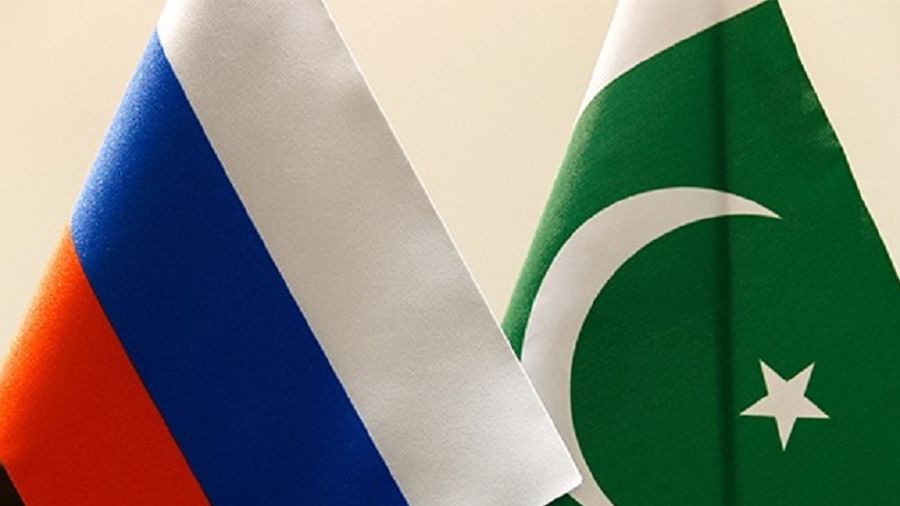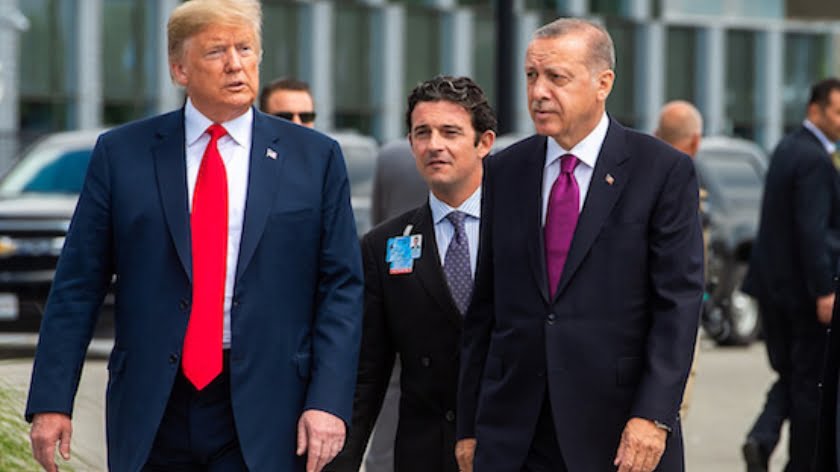It’s Crucial for Pakistan’s New Coalition Authorities to Clarify Their Ties with Russia
The Pakistani people deserve to know whether they can expect to receive forthcoming agricultural and energy imports from Russia at a 30% discount, which would tremendously help the country weather its ongoing economic crisis that the new coalition authorities claimed was one of the reasons why they decided to remove the former premier. It would be inconsistent with that rationale if they abandon the deal with Russia that former Prime Minister Khan claimed to have clinched or decline to provide an official update about it after he revealed its details during Saturday’s rally.
The topic of Russian-Pakistani relations has been at the forefront of the scandal surrounding former Prime Minister Khan’s ouster after he accused the US of orchestrating a regime change against him as punishment for his independent foreign policy, especially with respect to that Eurasian Great Power. The country’s new coalition authorities, however, insist that his removal was a constitutional and purely domestic political process. The controversy over this issue can be traced to a letter sent by the Pakistani Embassy in the US following a meeting in early March between Assistant Secretary of State for South and Central Asian Affairs Donald Lu and Pakistani Ambassador Asad Majeed Khan.
During their fateful discussion, the American diplomat allegedly expressed displeasure with former Prime Minister Khan’s refusal to postpone his planned trip to Moscow in late February that coincided with the commencement of Russia’s ongoing special military operation in Ukraine. Mr. Lu also made reference to the opposition’s long-planned no-confidence motion against him that was later tabled the next day and ultimately resulted in his removal from office. The sensitive interconnected international-diplomatic context in which this conversation occurred coupled with the topics that were reportedly touched upon fueled speculation from the former premier that the US was plotting to oust him.
Irrespective of whichever side of the debate one is on, it’s crucial for Pakistan’s new coalition authorities to clarify their country’s ties with Russia since this could put to rest some of the speculation about the US’ alleged intent in supposedly having a role in the former Prime Minister’s removal from office. This is all the more urgent after he revealed during his massive rally in Karachi on Saturday that Russia had agreed to provide oil and wheat to Pakistan at a 30% discount following the former premier’s trip to Moscow. This disclosure adds detail to what he said shortly after his visit with respect to the gas and wheat deals that he claimed to have clinched during his talks with President Putin.
It presently remains unclear whether oil exports were included as part of this reported package or if the former premier misspoke on Saturday and actually meant to say gas instead, but his mentioning of that resource prompted a rebuttal from Umair Saif, the Chief Digital Officer of the influential Jang Media Group. Mr. Saif tweeted “Small fact: Pakistan doesn’t have the capability to refine Russian Ural crude oil. Hence we don’t get any crude oil from Russia.” The intention behind this fact-check is ambiguous since it can be interpreted as either denying the existence of any oil deal with Russia or suggesting that any potential one that the former premier might have clinched could have been against Pakistan’s interests.
Considering the influence that he and his media group have over the current discourse on their country’s crisis, within which Russian-Pakistani relations have found themselves at the forefront due to the sequence of scandalous events that transpired since former Prime Minister Khan’s trip to Moscow in late February, the new coalition authorities should clarify their country’s ties with that Eurasian Great Power as soon as possible. The ousted leader’s claim that the Kremlin promised Pakistan a whopping 30% discount on those commodities (even if he meant to say gas instead of oil) strongly suggests that such a deal would be in his country’s objective national interests to retain.
Therein lies another layer of controversy though since the new coalition authorities’ planned relations with Russia remain unclear. President Putin sent a congratulatory message to newly inaugurated Prime Minister Shehbaz Sharif last week expressing hope that he “will seek to further promote closer multifaceted cooperation between Russia and Pakistan”, but speculation abounds that if former Prime Minister Khan is correct that the US did indeed overthrow him as punishment for his independent foreign policy and especially the close ties that he cultivated with Russia, then his successor might consider recalibrating that policy by at the very least somewhat distancing Islamabad from Moscow.
To be absolutely clear, Pakistan has the sovereign right to formulate its foreign policy however its associated professionals believe is the best way to effectively promote their national interests, even if that involves repairing their country’s troubled ties with the US. That being the case, the improvement of ties with one country shouldn’t ever come at the expense of ties with another. In the context of this analysis, this means that the deal that former Prime Minister Khan claimed to have clinched with Russia for securing a 30% discount on oil (or perhaps he meant gas) and wheat shouldn’t be abandoned unless the new coalition authorities can convincingly argue why their country doesn’t need it.
The future of Russian-Pakistani relations, which entirely depends on the intentions of the new coalition authorities after President Putin already made his abundantly clear in the congratulatory message that he just sent to Prime Minister Sharif, will therefore serve as a bellwether of whether the government that replaced former Prime Minister Khan is truly as independent as it claims. The controversy over this issue that the former premier just rekindled on Saturday after revealing details of his alleged deal with Russia makes it all the more urgent for his successor to clarify his country’s energy ties with Russia. This will either add credence to his claims or detract from them depending on what his representatives say.
If Pakistan continues to retain and build upon the foreign policy achievements that former Prime Minister Khan oversaw during his time in office, especially those related to the agricultural and energy deals that he claimed to have clinched with Russia, then it’ll suggest one of two things: either he wasn’t removed as part of a US-orchestrated regime change plot to punish him for his independent foreign policy; or members of his country’s powerful Establishment bravely decided to retain policy continuity in spite of speculative American pressure upon them. The point is that the new coalition authorities’ clarification of their ties with Russia will further clarify the events that led to them entering office.
It’s for that reason why they should seriously consider sharing some official insight into this sensitive matter. The Pakistani people deserve to know whether they can expect to receive forthcoming agricultural and energy imports from Russia at a 30% discount, which would tremendously help the country weather its ongoing economic crisis that the new coalition authorities claimed was one of the reasons why they decided to remove the former premier. It would be inconsistent with that rationale if they abandon the deal with Russia that former Prime Minister Khan claimed to have clinched or decline to provide an official update about it after he revealed its details during Saturday’s rally.







